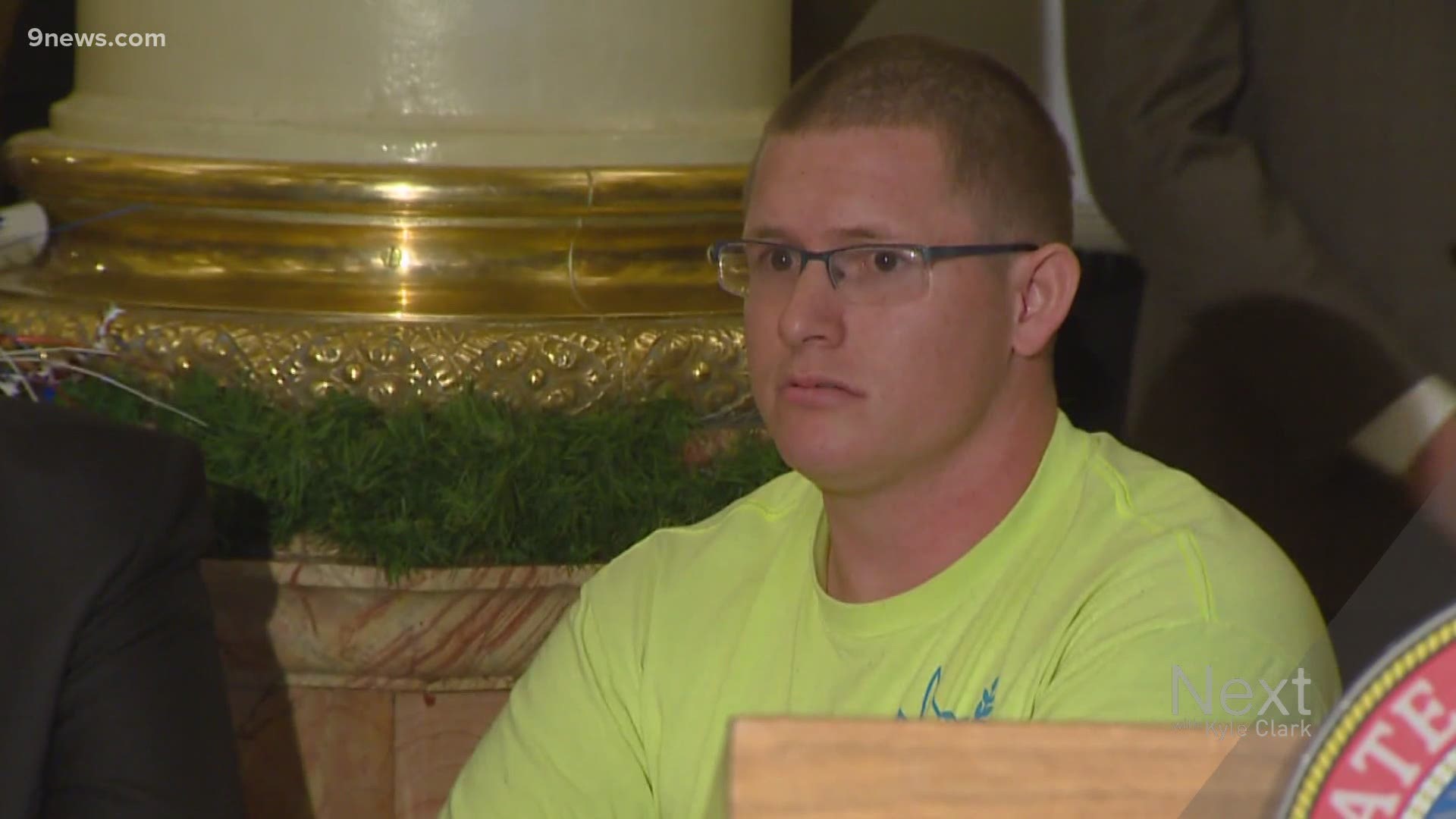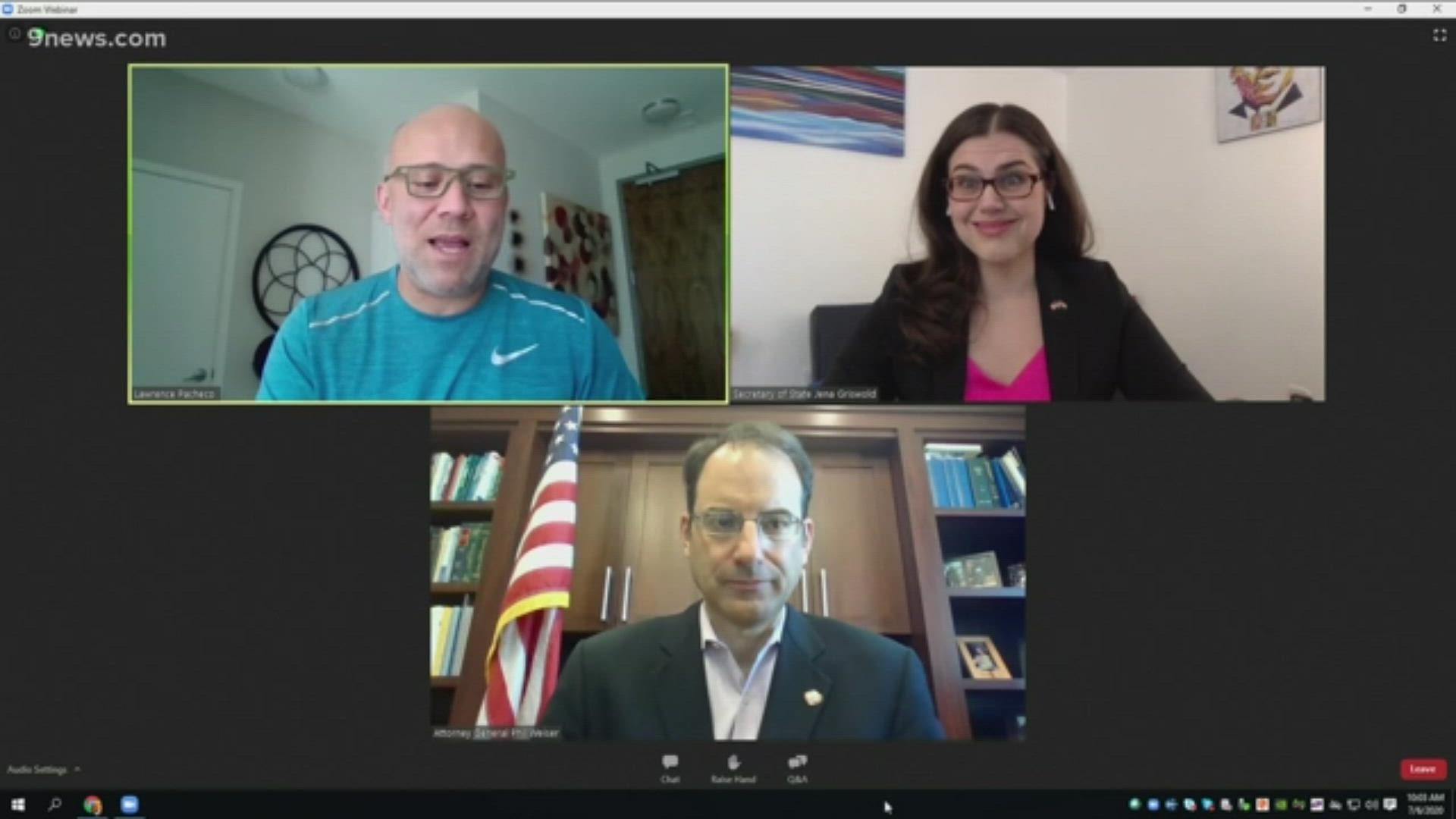DENVER — State Attorney General Phil Weiser and Secretary of State Jena Griswold praised the U.S. Supreme Court ruling Monday that states can bind their electors to back their states' popular vote winner in the Electoral College.
The high court's unanimous ruling involved lawsuits filed by three Hillary Clinton electors in Washington state and one in Colorado who refused to vote for her despite her popular vote win in both states in the 2016 election.
The Colorado case involved elector Michael Baca, a registered Democrat who in 2016 cast his vote for Ohio Gov. John Kasich, a Republican, in an attempt to stop President Donald Trump from securing the Electoral College votes he needed to win. Then-Secretary of State Wayne Williams removed Baca as an elector.
At a news conference on the Supreme Court ruling, Weiser and Griswold said they were happy the court sided with Colorado law, which binds electors to vote for whichever candidate receives the most votes.
Weiser said that with this ruling, Colorado dodged a constitutional crisis.
"When Coloradans vote in November, they expect their votes to be counted," he said. "They expect electors to act with fidelity to what the people of the state did because electors have been, throughout American history, proxy voters."
Griswold said that if the ruling had gone the other way, it would have opened up the country's election system to corruption and outside influence. She cited attempts from Russia and other countries to sway U.S. elections and said that binding state electors makes it more difficult for disinformation campaigns to succeed.
"This is just one other thing that Colorado is doing to lead on democracy at a time when we're seeing voter suppression, undermining of rule of law," Griswold said.
The ruling, just under four months before the 2020 general election, leaves in place laws in 32 states and the District of Columbia that bind electors to vote for the popular-vote winner, and electors almost always do so anyway.
Clinton won the presidential vote in Colorado in 2016, and state law requires the nine Electoral College electors to cast their vote for the person who wins the popular vote in the state.
When Baca cast his vote for Kaisch, Williams removed him as an elector, discarded his vote and appointed a replacement elector, who then cast their vote for Clinton.
Two other electors, Polly Baca (no relation to Michael) and Robert Nemanich, also intended to vote for Kasich, but voted for Clinton after seeing what happened to Micheal Baca.
The three sued the state and lost in District Court. That decision was then appealed to the 10th U.S. Circuit Court of Appeals.
In August, the appeals court determined that it's unconstitutional to remove a "faithless elector" for not casting their vote for the presidential candidate who receives the most votes in Colorado.
The Supreme Court announced its decision in January to review the appeals court decision.
A state may instruct “electors that they have no ground for reversing the vote of millions of its citizens," Justice Elena Kagan wrote in her majority opinion.
"That direction accords with the Constitution — as well as with the trust of a Nation that here, We the People rule,” Kagan wrote.
Gov. Jared Polis released a statement on the ruling:
“This is an important decision for the integrity of our democracy. I thank and congratulate Attorney General Phil Weiser for the thoughtful and successful argument he and his team presented to the Supreme Court on behalf of Coloradans. Until our country can fully reform our outdated electoral college rules, at least the vote of the people will be reflected by our electors.”
Baca is now a high school government teacher in Las Vegas. He previously told 9NEWS that he didn't set out to have a case in front of the Supreme Court, but that he wanted the decision to lead to reforms from lawmakers. His hope was that the country moved to a "one person, one vote" plan, with the winner of the national popular vote taking office.
9NEWS reporters Allison Sylte and Marshall Zelinger, as well as The Associated Press, contributed to this report.
SUGGESTED VIDEOS: Politics


